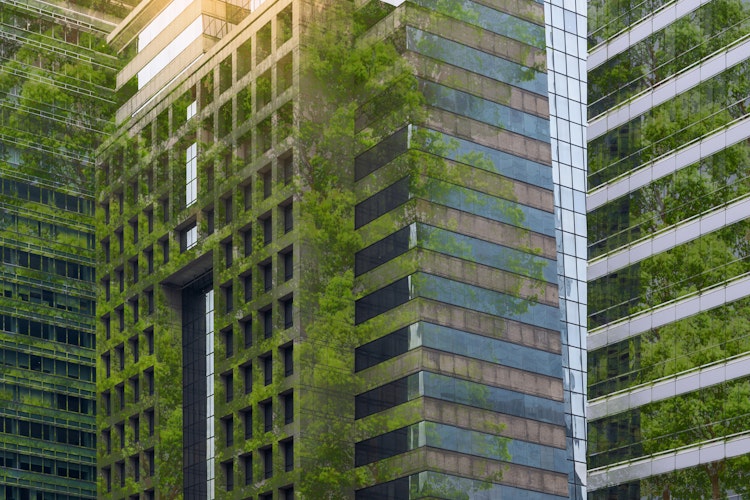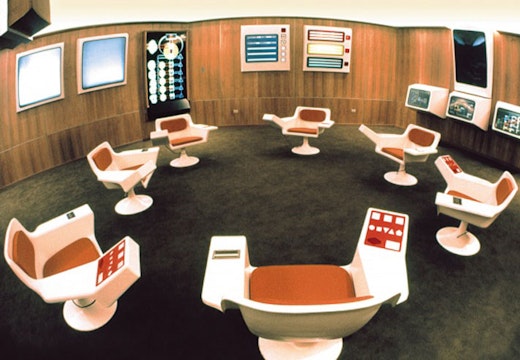Utopia or dystopia? How work shapes health in our cities
As our polluted urban centres struggle to be great places to live and work, public health policy is now turning its attention to what happens in the workplace
In making our cities healthier places to live and work in, many factors are uppermost in the minds of urban designers and public health officials. Air quality, noise levels, safer homes and access to light, green space, fresh food and clean water are what generally keep city planners and policymakers awake at night.
Office life has held a lesser priority in determining the overall health-inducing capacity of cities.
But now all that is changing as new working practices and alternative models of workplace design assume a growing role in making our urban centres healthier. And this shift of emphasis will be recognised this autumn at the Healthy City Design International Congress in London, 14-15 October 2019 – an event in which WORKTECH Academy is a partner.
Reform of work practices
In turning attention to what happens every day at work, the argument is increasingly being made that advances in urban health will remain slow unless workplaces – where large numbers of citizens spend unhealthy amounts of time – start to reform their practices.
Long, stressful commutes, presenteeism, poor diet, lack to natural light and lack of opportunities to exercise in office buildings are all issues coming under the spotlight as governments and public health authorities explore ways to put pressure on employers to up the wellbeing ante.
This focus on the workplace as a key to unlocking urban health possible comes at a time when the movement to develop healthier cities is reaching a crossroads. It isn’t hyperbolic to say that we face hard choices that can lead to different futures.
Change and renewal
On one hand, there is a utopian vision of urban change and renewal, with the green shoots of revival clearly evident in a host of policies and projects that support better health.
In this scenario, flexible work strategies reduce stress and gridlock; walking, cycling and public transport addresses over-reliance on the car; effective resilience planning stops the spread of infectious diseases and mitigates the effects of climate change; access to safe, affordable housing, green spaces and healthy local food underscore a commitment to community wellbeing.
As a result, a big weight is lifted off formal healthcare services as cities get on the front foot with a proactive stance on health. Dutch and Scandinavian cities are adopting many elements of this model; London is also looking to make progress with its ULEV (Ultra-Low Emission Zone) policy.
A nightmare scenario
The alternative vision is a dystopian one. In this scenario, air quality (already unacceptable in many cities) becomes more dangerous as commuters, cars and delivery vans clog up the roads; climate change threatens more than 500 hundred cities with flooding and many more with water shortages and heatwaves more intense and longer lasting than ever before; tensions rise between well-heeled business districts and areas of urban deprivation that ring them; ‘food deserts’ increase and green spaces are gobbled up by development.
As a result, healthcare services are put under exceptional pressure. Cities switch to reactive and even crisis mode on health. Some big Asian cities risk falling into this camp as they struggle with air pollution in particular.
Broader review and criticism
We all know which utopian scenario we’d prefer – and which nightmare outcome we are desperate to avoid. This is why the wellbeing strategies of large organisations and the workplace projects of leading developers are no longer subjects for scrutiny just within the confines of the commercial property industry, but are now more open than ever before to broader review and criticism by the wider forces that shape and inhabit our cities.
And as strict zonal planning in cities loosens up in favour of more mixed-use development, nestling workspace in amongst residential, retail, hospitality, transport and education, this process of wider social responsibility is set to accelerate.
This battle between competing utopian and dystopian visions of the city is the subject of the third Healthy City Design International Congress, which will be held this autumn (14-15 October 2019) at the Royal College of Physicians building in London. Academic lead for the event is WORKTECH Academy director Jeremy Myerson, who is also Helen Hamlyn Chair of Design at the Royal College of Art.
‘Our cities are at a crossroads in terms of health…’
WORKTECH Academy is sponsoring and co-curating a special strand of the Congress devoted to work and workplace.
Papers and workshops will look at such office-based themes as sound, light, biophilia, mental health, participatory design and post-occupancy evaluation. WSP, Cullinan Studio, International Well Building Institute and Bartlett School, University College London, are among those organisations taking part, alongside Academy global partners Lendlease and BVN Architects.
With our cities at a crossroads in terms of health, there is clearly plenty to discuss in the work arena. Whatever way things go, one thing is clear: office design and strategy is no longer a private matter behind closed doors. It is increasingly becoming an instrument of public health policy.
You can see Jeremy Myerson’s introduction to the 2018 Healthy City Design Congress here.
See also Dr Howard Frumkin of Wellcome Trust present ‘Our planet, our health, our cities’ at the 2018 Congress here.
Ben Cave of pollsters Ipsos Mori discusses ‘Citizens’ views of cities around the world’ at the 2018 Congress here.








